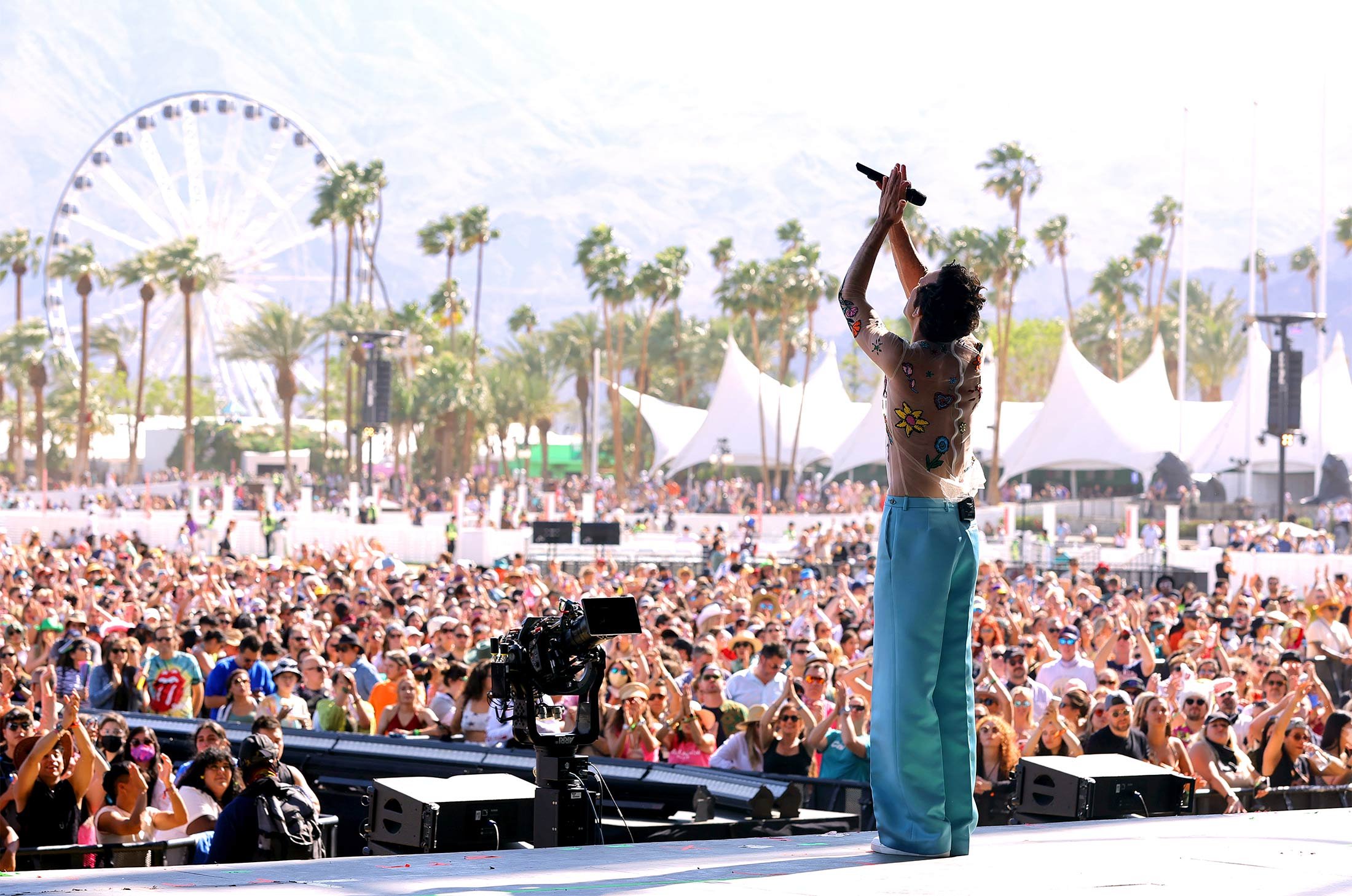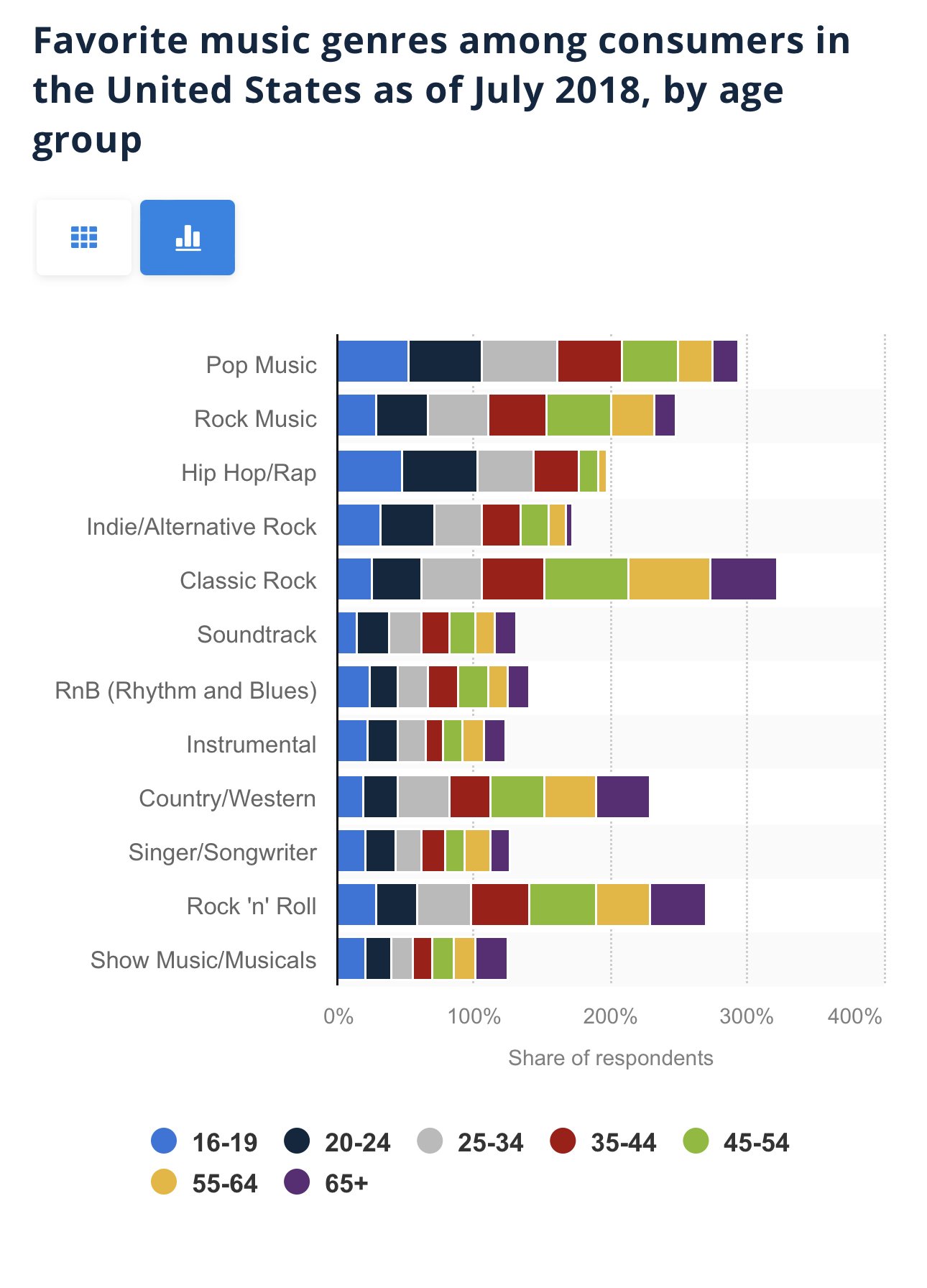Coachella is one of the world's largest and most popular music festivals. What started out as a small, indie rock festival in the desert has now evolved into a mainstream festival featuring some of the biggest pop stars in the world. Despite this shift in musical genres and fan demographics, Coachella still represents the true nature of alternative rock, while conventional alternative rock radio formats struggle to find mass appeal.
Why? It could be the lifestyle experience.
A key factor in the success of Coachella is its emphasis on the "vibes." Fans of the festival are not only there to listen to music - they're there for the entire experience. The festival has become a cultural event with a lifestyle attached to it. Coachella's emphasis on fashion and influencers has made it a destination for people to see and be seen. Attendees are eager to share pictures of themselves and their outfits on social media, and the festival's activations and art installations give attendees a sense of participation beyond just attending a concert. This gives Coachella a unique culture that reflects the true nature of alternative rock.
But what about alternative rock radio formats? Despite being a staple of the music industry for decades, the format has struggled to find mass appeal in recent years. According to a 2018 article from PopMatters, the growth of streaming services has led to a decrease in radio listenership. This decline is even more pronounced for alternative rock radio, where ratings have consistently fallen year over year. In fact, according to Nielsen's 2021 report on the US music industry, rock music as a whole only accounts for 9.1% of total music consumption.
So why has alternative rock radio struggled while Coachella thrives? It comes down to the different experiences that fans are seeking. Alternative rock radio is a passive experience - listeners tune in to hear their favorite songs and new releases. But Coachella is an active experience - attendees want to participate in the festival and everything it has to offer. They want to be a part of the culture, to dress up, and to take part in the activations. This experiential aspect of Coachella is what sets it apart from traditional radio formats.
In a Bridge Ratings’ national study of 9950 Rock and Alternative Rock partisans, lack of artist and song variety (67%) and a preference for a greater reflection of the Alternative Rock lifestyle (58%) were key responses as to why listening had decreased over the last year.
Part of the problem for Alternative Rock Radio is that it generally continues to reflect its original purpose which is out of sync with today’s potential audience. The name “Alternative Rock” is often wrongly associated with "Modern Rock". This is wrong because originally Alternative Rock was a genre and followed a specific style, Modern Rock was a radio format and simply refers recent bands.
Note: discrepancies with categorizing bands as "Alternative Rock" come from the fact that most Alternative bands used to fit easily into an Alternative Rock subgenre (Nirvana - Grunge, Modest Mouse - Indie) and could be classified as either the subgenre or "Alternative Rock" in general; if a band covered more than one style instead of sticking to one in particular, they were usually just called "Alternative Rock".
Our study suggests that today’s Alternative Rock audience is young and their taste for all things experiential dominate their relationship with all things entertainment. There are stations that infuse their programming with lifestyle content/imaging and they tend to perform better especially among the young end of their audience.
Another factor that sets Coachella apart is the festival's ability to adapt to changing musical trends. As mentioned earlier, the festival has shifted from alternative rock to mainstream pop. But instead of losing its identity, Coachella has managed to redefine itself while still maintaining the vibe that fans have come to love. This is in contrast to alternative rock radio, which has struggled to keep up with musical trends and evolving tastes. As songs from different genres become popular, alternative rock radio has failed to adapt, leading to a decline in listenership.
Coachella reflects the true nature of alternative rock by emphasizing the experiential aspect of the culture. Despite the festival's shift towards mainstream pop, it still manages to maintain the vibe that fans have come to expect. This is in contrast to alternative rock radio, which has struggled to find mass appeal in recent years. By failing to adapt to changing musical trends and the rise of streaming services, alternative rock radio has become a passive experience that fails to capture the essence of the alternative rock culture.


